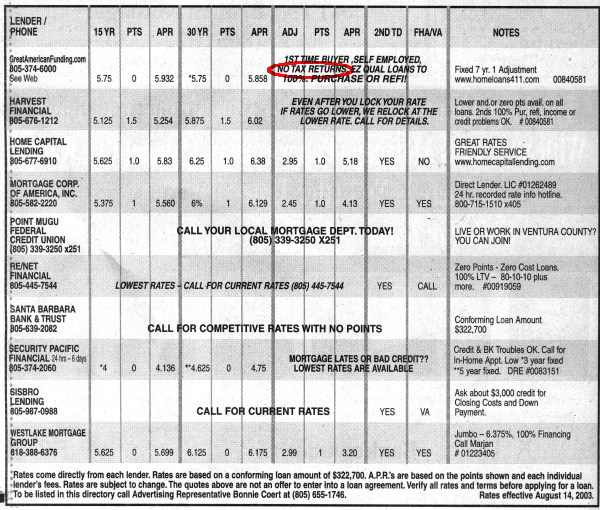It is a given in the United States that free markets can solve all problems. Bureaucratic inefficiency? Give the job to competing businesses and waste will disappear. World hunger? Nothing some free trade can’t cure. Global warming? If there’s a problem, free markets will let the best solution win. Unfortunately, despite the application of capitalism, the problems on the ground get worse, not better. However, that’s supposed to be because we still have too much regulatory baggage for the benefits of freedom to show through. The more problems there are, the more free trade we need.
That kind of thinking reminds me of the communist party line, which said that communism would solve all problems, and the only reason it hadn’t was that those miserable bourgeois were still gumming up the works. China’s Great Leap Forward was supposed to root out these remnants, and we all know how smoothly the communist economy functioned after that.
So I would like to cast a jaundiced eye on the free market, and explain why I think we can’t afford more of it than we actually need. My background is not in economics, which is ample qualification to discuss the subject. Economists, after all, are the ones who assume that decisions about buying and selling are based on rational thinking. Stop laughing for a second, and take stock of just how far away from the real world these people must live. Another thing economics teaches us is that supply and demand are always in balance in a free market. It’s impossible, for instance, for oil to run out because supply balances demand. Totally gaga, right? It took a translation from econospeak for me to make sense of this. To an economist, demand equals ability to pay, and not demand in the ordinary sense of the word. So, if there is only one shipload of oil left in the world, it will cost billions of dollars, and there will be few buyers bidding for the meager supply. And, they point out, you can always squeeze out another barrel or two, so the supply never actually runs out. These are the people managing the world’s economies.
(I should, perhaps, attach a humor alert to the previous paragraph. And even though economics deserves much much of its reputation for having no clothes, I would never have understood the little I do understand about it without the help of some very sharp economists willing to talk to the rest of us. E.g. Brad DeLong, Kash and others at Angry Bear, Paul Krugman, James Hamilton at Econbrowser, Mark Thoma, excellent articles in The Economist.)
The biggest recent failure of unreal economic theories was communism, but that doesn’t make capitalism right just because it’s the opposite. That is not good logic. It’s also more than a theoretical fallacy, since capitalism shows symptoms of the same problem of trying to fit human nature to economies, rather than the other way around.
Economic theory still seems to have a tenuous grip on how people work. It was born in the era of the Gas Laws, the subsequent invention of the steam engine, and its transformation of society. Everybody who was anybody wanted to be in on the game. Everything was viewed as a mass of gas, its little molecules bumping around frictionlessly, and if you could just figure out the laws governing the motions, as Boyle had done for gases, you’d have the whole system figured out. People in a market were like atoms, buyers bumping into sellers, bouncing off, with the force of the interaction dependent on as simple a set of parameters as any volume of hot air. Most people, of course, don’t make very good gas molecules, which is something economists eventually figured out and which made their equations increasingly complex. However, to this day, many of their ideas smack of the old simplicity and clarity, as if they’re not only studying gas, but have forgotten they live on a planet and need to take gravity into account.
The human equivalent of gravity is power, whether it’s social, military, or financial. Without taking into account how power tilts and warps any given situation, there isn’t a hope of providing the level playing field that is supposed to be the home of the free market. It is a fact of human nature that people holding the levers of power will try to tilt the field. (Just as it’s a fact that people will only live by half of the communist ideal, facetiously summarized as, “What’s yours is mine, and what’s mine is yours.”) Everybody knows that unrestrained freedom is just a way to hand the game to the biggest bully on the block. That’s why stock exchanges are among the most tightly regulated activities in the world.
However, the focused and continuous balancing needed to keep free markets on the level is generally obscured by the free marketeers themselves. Regulation is anathema to them, and yet when they lose in the market, they demand special treatment. There are endless examples of this, but look at just one particularly ironic one. The North American Free Trade Agreement allowed subsidized US corn to undersell that produced in Mexico. Thousands of poor farmers went out of business and whole communities are collapsing. The people, however, aren’t sitting on their butts waiting for handouts. They go where the work is, and since their own provinces are broke, that means going north. In the US, these people “taking jobs away” are unwanted, so US regulations prevent a free market in labor, and seal the borders against the poverty they created.
Considering the spotty adherence to free market principles, that philosophy looks less like an ideal and more like a con man’s attempt to distract attention from what his fingers are doing to your wallet. The only thing to be said for it is that the system, as applied, does work for the con man. On the other hand, true believers in unfettered capitalism actually subscribe to the principles of anarchism, which holds that social systems self-regulate if there is no interference. Anarchism hasn’t worked for anybody.
Regulation of markets is a fragile thing: too much, and there’s no free market; too little, and the result is the same. So let’s begin at the beginning and think about what a market actually is. It’s a place where things are bought and sold. Logically, anything that can be bought and sold, such as oranges or copper, belongs there. Equally logically, anything that cannot be traded does not belong there. That includes practically everything that really matters, such as life, liberty, happiness, hope, love, and God. A market trades things. It doesn’t try to provide the greatest good of the greatest number, or moral behavior, or knowledge, or anything we care about except a living. Free markets are good, within their limits, at divvying up livings.
The concept that free markets have limits is the important one. They’re not bad in and of themselves. They’re good at what they do, but they do not do everything. That used to be taken for granted, but lately it’s become a radical position, so the limits need to be examined.
The most obvious one is that human life should not be for sale. Slavetrading is a crime against humanity. However, other stark ways of putting a price on life are not much better. Policies that cause people to starve, sicken, or die, all these are also crimes. I realize that this has implications for everything from pollution to structural poverty in the Third World. I realize that it means medicine should not rightly be profit-driven. I know it means that whole sectors of the market would have to stop making a killing, and go back to making a living. Putting a price on life is a crime, whether our economic system is built on allowing it or not. If we don’t want to be criminals, the economic system has to be changed.
It’s common practice to forget that free markets are based on a series of assumptions, and that when these assumptions don’t hold, there can be no free market. In very general terms, free markets presuppose equality. Buyers and sellers have equal levels of choice of trading partners, as well as equal access to information. The famous self-correcting and self-regulating abilities of markets depend on the participants having other choices, so that bad deals evaporate when all they do is drive everyone elsewhere. When participants have too little choice, it’s the freedom of the market that evaporates.
Monopolies reduce choice, which is why they’re not supposed to exist without heavy regulation, and yet they’re so lucrative that it’s a constant struggle to beat them back. The latest trick is to pretend tiny companies provide enough choice so that the giants don’t need to be regulated. (Yes, I’m thinking of Microsoft.)
There is, however, a more insidious form of monopoly which isn’t recognized because it is new. In a technological age, the mental cost associated with learning to use new things can create its own kind of barriers. Once you’ve learned how to use the “qwerty” keyboard, for instance, you won’t use another kind even if it’s demonstrably cheaper, faster, and better. The same is true of anything bought with a learning curve as well as money, and if we’re to get the benefits of free markets for complex things, it’s very important to adapt copyright and patent law to be fair to the buyer’s time as well as the seller’s intellectual property.
Another kind of unfree market that does not receive enough attention is the labor market. The difference in power between employer and employed is huge, but discussions about labor proceed as if workers can quit jobs as easily as they can get them. In reality both carry enormous costs, and pretending otherwise is simply a way of tilting the playing field into something more like a slide that ends right in the employer’s hands. Convenient for employers, certainly, but not in any sense free.
The abuses that can be expected when buyer and seller aren’t equal happen without fail. Sometimes it’s a matter of paying starvation wages to people in countries without labor laws and then quietly pocketing the profit when the t-shirts, or whatever, are sold in countries where labor laws have created a population rich enough to pay more. Sometimes it’s a matter of socializing the costs of underpaid labor, such as medical care, while privatizing the profit. All of this has tremendous social consequences in terms of stress, disease, and crime, and yet we seem unable to stop the true perps from laughing all the way to the bank.
In addition to free choice, efficient markets depend on equal access to good information, but preventing that access is the quietest and most effective way to tilt any playing field. Controlling the flow of information doesn’t have to be done with hamhanded secrecy. For instance, regulations require lots of information about companies to be published, but nobody without a degree in accounting can understand it. This is not because that is the only way to present those facts.
Markets are supposed to summarize all the information about a sale in its price. Products made more efficiently provide more value for less cost and are supposed to win the competition. That would be great if it worked, but cost information is rigged and the system is failing so badly we may lose the planet in the process. The game starts in the very definition of what is a cost, long before it enters the realm of economics. The seller obviously wants costs to be as low as possible, since everything above that is profit. The honest way to do this is to keep costs low. The less honest way to do this is pretend costs don’t exist, thereby sticking someone else with the bill. Costs are defined as whatever the seller says they are, and all the other costs–social, environmental, or medical–belong to someone else. This is, in effect, a blank check to rip off the world. At this rate, so-called free markets cost way more than the whole planet can afford. What capitalism needs, if it’s not to fail even more spectacularly than communism, is reality-based accounting.
Even a glance as rapid as the one I’ve tried to give here is enough to show how far away from free markets we actually are. Examples of the discrepancies could be multiplied easily, but the solutions are difficult because every problem is caused by excess pressure on the levers of power, and counteracting the powerful is the most difficult social problem of all. I hope I’ve made it clear that I’m not opposed to free markets. Far from it. In their proper place, and operating under the conditions they need, I think they’d do a much better job of rewarding merit and distributing wealth than our current system of insisting, “What’s yours is mine, and what’s mine is mine.”
Technorati tags: free market, capitalism, socialism, globalization, social costs, environmental costs, economics,
legal: Site covered by a creative commons license with the following limits: content may only be used without modification, for non-commercial purposes, and with attribution to Mia Molvray and her home page as noted here.
 Print This Post
Print This Post

 Print This Post
Print This Post

 Does anyone honestly think austerity is important to the restoration of fiscal balance because
Does anyone honestly think austerity is important to the restoration of fiscal balance because 



